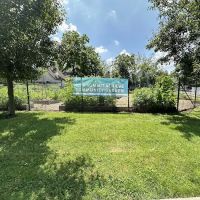Summit’s ACHIEVE Community Garden Introduce
In the heart of New Jersey, communities are increasingly recognizing the profound benefits of connecting with nature and fostering local food systems. Summit’s ACHIEVE Community Garden stands as a shining example of this movement. More than just a collection of garden plots, this vibrant space on Beauvoir Place has become a cornerstone for health, education, and community building in Summit. It's a place where neighbors of diverse backgrounds come together, hands in the soil, to cultivate fresh, organic produce and nurture a stronger, more connected community.
The concept behind Summit’s ACHIEVE Community Garden is simple yet powerful: provide residents with the space and knowledge to grow their own food, promote sustainable practices, and contribute to local food security. This initiative not only empowers individuals to eat healthier but also creates a unique social hub where gardening tips are shared, friendships blossom, and a collective sense of purpose thrives. It’s a true testament to how a shared green space can significantly enhance the quality of life for locals in New Jersey. This article will delve into the specifics of Summit’s ACHIEVE Community Garden, detailing its location, the services and opportunities it offers, its distinctive features, and why it is such a suitable and cherished resource for the Summit community.
Summit’s ACHIEVE Community Garden is conveniently located at Beauvoir Place and Beauvoir Avenue, Summit, NJ 07901, USA. This address places it within a residential area of Summit, making it highly accessible for many residents within the city and surrounding areas of Union County. The garden benefits from its peaceful setting while remaining easily reachable.
Accessibility to the garden is generally straightforward. For those traveling by car, street parking may be available in the vicinity of Beauvoir Place and Beauvoir Avenue. Given its location within Summit, residents can also access the garden by walking or biking, especially those living in nearby neighborhoods. Summit is a well-connected city, served by NJ Transit bus routes and a train station that provides commuter rail service. While direct public transportation stops may require a short walk to the garden, the overall connectivity of Summit ensures that the garden is a viable destination even for those relying on public transport. The garden is typically fenced in, but operates during specific hours (e.g., Monday - Friday, 8:00 am to 9:00 pm or dusk; Saturday - Sunday, 9:00 am to 9:00 pm or dusk), and gates are usually locked when unattended, which helps ensure the security of the plots and tools.
Summit’s ACHIEVE Community Garden offers a range of services centered around providing residents with the opportunity to grow their own food and engage in community-oriented activities. Based on publicly available information and typical community garden models, the key services provided include:
Individual Garden Plots: The primary service is the provision of individual raised garden beds or plots (often approximately 4' x 16') that community members can rent for a growing season. These plots allow gardeners to cultivate their own organic vegetables, fruits, and herbs.
Organic Gardening Environment: The garden operates under strict organic principles, prohibiting the use of synthetic pesticides, herbicides, and fertilizers. This ensures a healthy and safe environment for both gardeners and the produce.
Access to Water: Gardeners are provided with access to water spigots and drip irrigation (in some cases) to ensure proper hydration for their crops.
Shared Tools and Resources: The garden typically provides access to some shared common tools and equipment for general garden maintenance. Compost facilities are often available for organic waste.
Educational Support and Workshops: The garden fosters a supportive environment for learning, often offering workshops on organic pest control, healthy soil management, and other gardening techniques. Experienced gardeners may also mentor new ones.
Community Contribution Opportunities: Gardeners are encouraged to donate excess crops to local food pantries, such as the Saint Teresa Food Pantry, fostering a strong connection to community food security initiatives.
Volunteer Opportunities: All gardeners are expected to contribute volunteer hours (e.g., 4-8 hours per season) towards general garden maintenance, such as mowing common areas, weeding shared spaces, or assisting with compost management. "Crews" for specific tasks like shed maintenance or pollinator care may also be available.
Social Interaction: The garden serves as a natural meeting place, facilitating social interaction, cultural exchange, and friendship-building among diverse neighbors.
These services collectively empower residents to engage in sustainable gardening practices while building a healthier and more connected community.
Summit’s ACHIEVE Community Garden distinguishes itself through several key features and highlights that make it a unique and valuable asset for the Summit community:
Organic Practices Requirement: A core highlight is its strict adherence to organic gardening principles. This means no synthetic fertilizers, pesticides, or herbicides are allowed, creating a safe and healthy environment for growing food and ensuring fresh, clean produce for gardeners.
Community Focus and Inclusivity: The garden is designed to bring together people of diverse backgrounds, income levels, and gardening experience. It actively promotes cultural exchange and social interaction, fostering a strong sense of community among its members.
Contribution to Food Security: A significant feature is its mission to provide fresh vegetables to neighbors in need, particularly those who visit the Saint Teresa Food Pantry. Gardeners are encouraged to donate excess crops and volunteer in designated "Food Pantry beds," making a tangible impact on local food security.
Educational Environment: The garden serves as a living classroom. It provides a supportive environment for learning about sustainable gardening practices, with opportunities to share knowledge among gardeners, and potentially access to workshops and expert advice (e.g., from Master Gardener Volunteers).
Raised Beds for Accessibility: Many community gardens, including this one, often feature raised garden beds. While not explicitly stated for every plot, raised beds can offer improved accessibility for gardeners with disabilities or those who have difficulty bending low, enhancing inclusivity.
Structured Operation and Shared Responsibility: The garden operates with clear rules regarding plot maintenance, volunteer hours, and general upkeep. This shared responsibility ensures that the garden remains well-maintained and productive, fostering a collective ownership among its members.
Funding and Support: The garden benefits from support from various entities, including grants from the Centers for Disease Control’s ACHIEVE program (Action Communities for Health, Innovation & Environmental Change), the Overlook Foundation, the Summit Garden Club, and the Junior League of Summit, underscoring its community value and sustainability.
Beehives and Pollinator Health: Some community gardens integrate beehives, which contribute to the pollination of crops and overall ecosystem health. While specific details for Summit ACHIEVE may vary, many organic gardens prioritize pollinator-friendly practices.
These features collectively define Summit’s ACHIEVE Community Garden as a model for community-driven sustainable agriculture and social cohesion in New Jersey.
As a community garden initiative, Summit’s ACHIEVE Community Garden does not operate with traditional commercial "promotions" or "special offers" in the retail sense. Its primary "offers" are embedded in the opportunities and benefits it provides to the community, often with a focus on affordability and social impact.
The special benefits that Summit’s ACHIEVE Community Garden extends to local users can be considered as follows:
Affordable Plot Rental: Plot fees are typically structured on a sliding scale or designed to be affordable for everyone, ensuring that economic background is not a barrier to participation. Financial assistance may also be offered to lower-income gardeners, making it accessible to a wider demographic.
Access to Organic Produce: Gardeners gain the invaluable "offer" of growing their own fresh, organic, and locally-sourced produce, leading to potential savings on grocery bills and healthier eating habits.
Educational & Skill-Building Opportunities: The garden inherently "offers" hands-on learning experiences in organic gardening, soil health, and pest management. Workshops and shared knowledge from experienced gardeners contribute to skill development.
Community Building and Social Connection: Participation in the garden "offers" unique opportunities for social interaction, fostering friendships, and building a stronger sense of community among diverse neighbors.
Contribution to Food Security: The chance to contribute excess produce to local food pantries is a significant "offer" for those who wish to give back to their community and address food insecurity in Summit.
Volunteer Hour Flexibility: While volunteer hours are required, some gardens may offer "volunteer buyout" options for those unable to meet the commitment, providing flexibility while still supporting the garden's operations.
For specific details on plot availability, registration periods, plot fees, or any scheduled workshops or events, interested individuals should consult the official website or contact the garden organizers directly. Information about plot availability and registration typically becomes available in late winter or early spring.
For any inquiries regarding Summit’s ACHIEVE Community Garden, including plot availability, registration processes, operating rules, or volunteer opportunities, the best points of contact are typically the garden organizers or the managing entity.
The address for Summit’s ACHIEVE Community Garden is:Beauvoir Place and, Beauvoir Ave, Summit, NJ 07901, USA
While a direct dedicated phone line specifically for the garden may not be available, inquiries are typically handled through the organization that manages the garden or through a specific garden coordinator. Based on past information, the garden has been supported by the Summit Area YMCA and may have a direct website for operations.
It is highly recommended to visit the official website or online resources related to Summit’s ACHIEVE Community Garden for the most current information. A common practice for community gardens is to have an email contact for inquiries and a website where applications and rules are posted. Searching for "Summit ACHIEVE Community Garden" online will typically lead to the most up-to-date contact information and application details. For example, looking for information provided by the City of Summit or the Summit Area YMCA (if still involved) would be beneficial.
Past information indicates an email might be available, and looking for a dedicated garden website (e.g., SummitAchieveGarden.com) or associated pages on the City of Summit's or Summit YMCA's sites is the best approach.
Summit’s ACHIEVE Community Garden is an exceptionally suitable and valuable resource for New Jersey locals, especially those residing in Summit and the surrounding areas. Its core mission of providing accessible organic gardening plots directly addresses a growing desire among residents to cultivate their own food, fostering healthier eating habits and a deeper connection to nature. For many, having a dedicated plot to grow fresh produce is a dream, and this garden makes it a tangible reality, even in a suburban setting.
Beyond the tangible benefits of fresh food, the garden cultivates a vibrant and inclusive community. It brings together people from diverse backgrounds, promoting social interaction, shared learning, and mutual support. This aspect is particularly crucial in building a stronger, more resilient community fabric. The garden's commitment to organic practices ensures a safe and sustainable environment, aligning with the values of environmentally conscious residents. Furthermore, its active role in contributing produce to local food pantries allows gardeners to directly impact food security within their own community, adding a layer of meaningful civic engagement.
For families, it offers a unique outdoor classroom where children can learn about where their food comes from, fostering an appreciation for agriculture and the environment. For individuals, it provides a peaceful escape, a source of healthy activity, and a rewarding hobby. In essence, Summit’s ACHIEVE Community Garden is more than just a place to grow vegetables; it is a thriving hub for health, education, and community cohesion, making it an indispensable part of life for locals in Summit, New Jersey.
Summit’s ACHIEVE Community Garden Photos
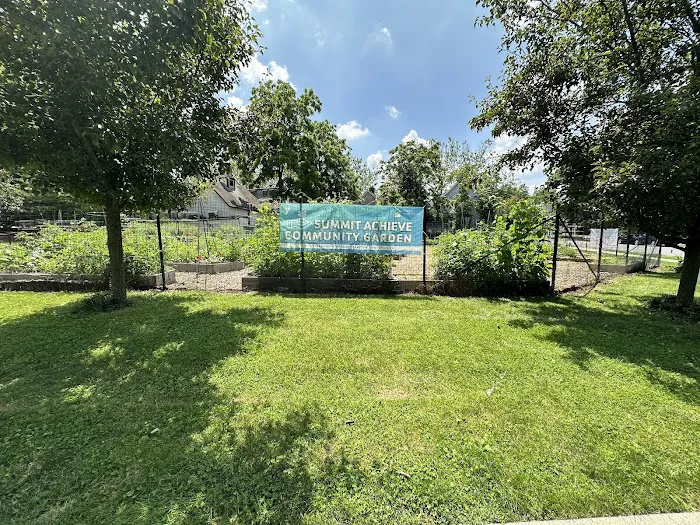
Summit’s ACHIEVE Community Garden Location
Summit’s ACHIEVE Community Garden
Beauvoir Place and, Beauvoir Ave, Summit, NJ 07901, USA
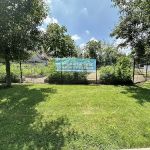 Summit’s ACHIEVE Community Garden
Summit’s ACHIEVE Community GardenBeauvoir Place and
 Summit Village Green
Summit Village GreenUnnamed Road
 Summit Village Green
Summit Village Green356 Broad St
 Summit Park Line Morris Avenue Entrance
Summit Park Line Morris Avenue Entrance155-163 Morris Ave
 Summit Park Line
Summit Park Line10 Overlook Rd
 The DeBary Inn
The DeBary Inn265 Springfield Ave
 Turkey Hill Inn
Turkey Hill Inn73 Beechwood Rd
 The Albion Summit Hotel
The Albion Summit Hotel570 Springfield Ave
 Edison Recreation Center
Edison Recreation Center100 Morris Ave
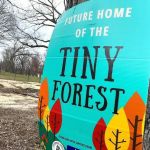 Tiny Forest
Tiny Forest100 Morris Ave
 Soldiers Memorial Field
Soldiers Memorial FieldSummit
 Reeves-Reed Arboretum
Reeves-Reed Arboretum165 Hobart Ave
 Briant Park
Briant Park301 Shunpike Rd
Summit’s ACHIEVE Community Garden Reviews
More Scenic Spot
 Summit Village Green5.0 (3 reviews)
Summit Village Green5.0 (3 reviews)Unnamed Road, Summit, NJ 07901, USA
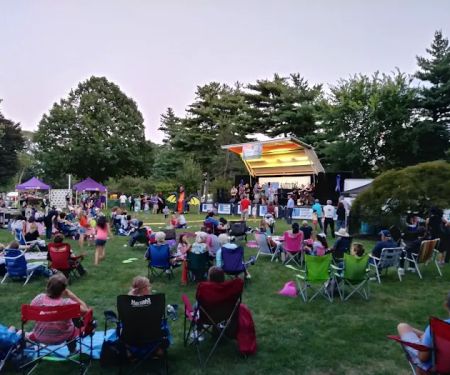 Summit Village Green0.0 (0 reviews)
Summit Village Green0.0 (0 reviews)356 Broad St, Summit, NJ 07901, USA
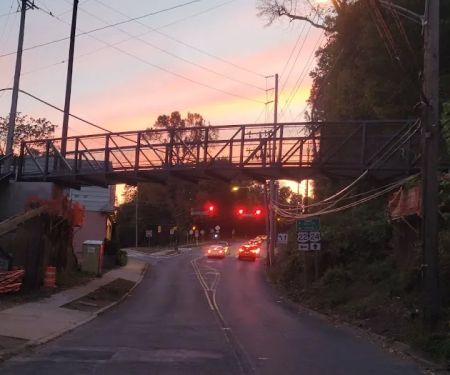 Summit Park Line Morris Avenue Entrance5.0 (2 reviews)
Summit Park Line Morris Avenue Entrance5.0 (2 reviews)155-163 Morris Ave, Summit, NJ 07901, USA
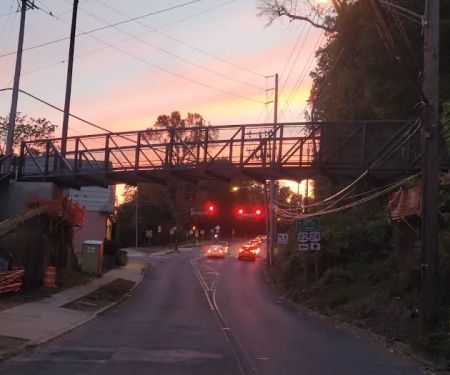 Summit Park Line4.0 (8 reviews)
Summit Park Line4.0 (8 reviews)10 Overlook Rd, Summit, NJ 07901, USA
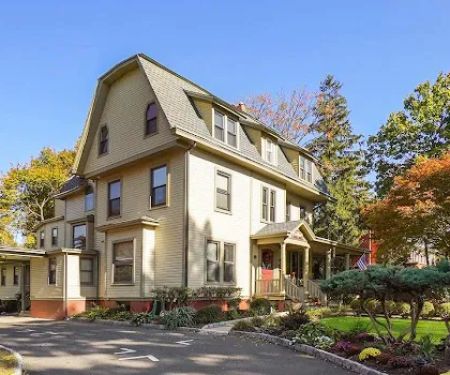 The DeBary Inn4.0 (217 reviews)
The DeBary Inn4.0 (217 reviews)265 Springfield Ave, Summit, NJ 07901, USA
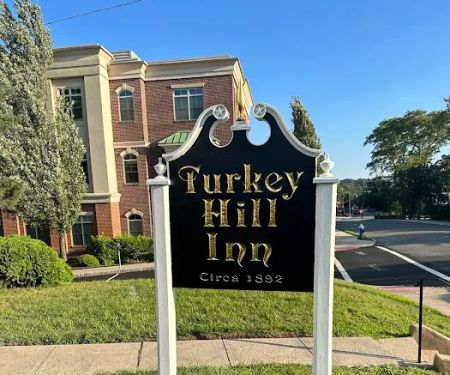 Turkey Hill Inn4.0 (65 reviews)
Turkey Hill Inn4.0 (65 reviews)73 Beechwood Rd, Summit, NJ 07901, USA
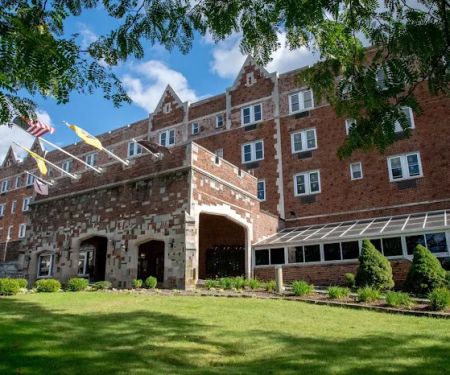 The Albion Summit Hotel4.0 (25 reviews)
The Albion Summit Hotel4.0 (25 reviews)570 Springfield Ave, Summit, NJ 07901, USA
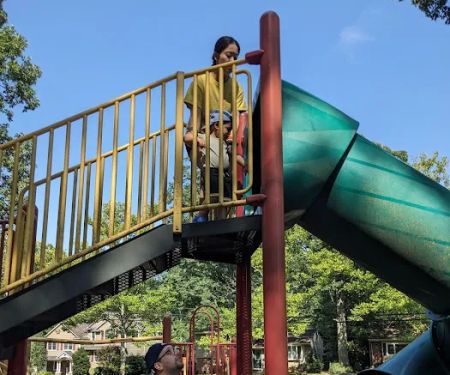 Edison Recreation Center4.0 (14 reviews)
Edison Recreation Center4.0 (14 reviews)100 Morris Ave, Summit, NJ 07901, USA
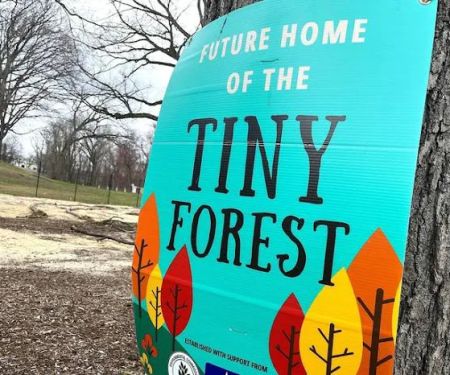 Tiny Forest5.0 (2 reviews)
Tiny Forest5.0 (2 reviews)100 Morris Ave, Summit, NJ 07901, USA
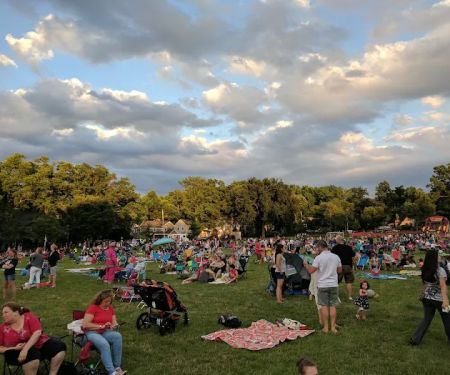 Soldiers Memorial Field4.0 (199 reviews)
Soldiers Memorial Field4.0 (199 reviews)Summit, NJ 07901, USA
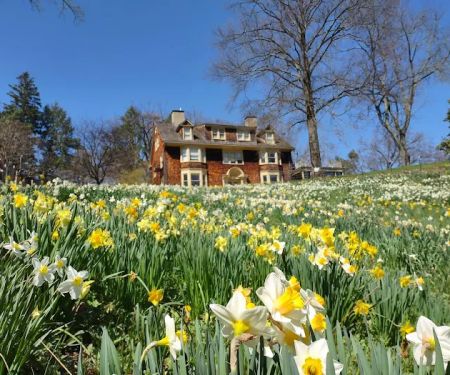 Reeves-Reed Arboretum4.0 (808 reviews)
Reeves-Reed Arboretum4.0 (808 reviews)165 Hobart Ave, Summit, NJ 07901, USA
 Briant Park4.0 (400 reviews)
Briant Park4.0 (400 reviews)301 Shunpike Rd, Springfield, NJ 07081, USA
Categories
Popular Camping Sites
 Elizabeth River Park4.0 (473 reviews)
Elizabeth River Park4.0 (473 reviews) Hotel Richmond2.0 (107 reviews)
Hotel Richmond2.0 (107 reviews)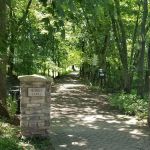 Morris Canal National Registered Landmark5.0 (2 reviews)
Morris Canal National Registered Landmark5.0 (2 reviews) Old Mine Park4.0 (201 reviews)
Old Mine Park4.0 (201 reviews)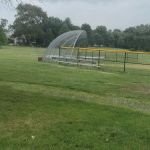 Zimmerman Park4.0 (10 reviews)
Zimmerman Park4.0 (10 reviews) King Mansion4.0 (55 reviews)
King Mansion4.0 (55 reviews)Trending Camping Blog Posts
 Top Group Travel Destinations in Europe: Best Places for Group Vacations
Top Group Travel Destinations in Europe: Best Places for Group Vacations How to Get Involved in Travel Clans for Social Travel: Explore Group Travel Opportunities
How to Get Involved in Travel Clans for Social Travel: Explore Group Travel Opportunities Best Travel Clans for Sustainable Travel
Best Travel Clans for Sustainable Travel Best Group Vacation Destinations for Friends: Ultimate Travel Ideas
Best Group Vacation Destinations for Friends: Ultimate Travel Ideas Travel Clans for Solo Travelers Looking for Company: Join Unique Travel Communities
Travel Clans for Solo Travelers Looking for Company: Join Unique Travel Communities Best Travel Clans for Women Traveling Together
Best Travel Clans for Women Traveling Together 
